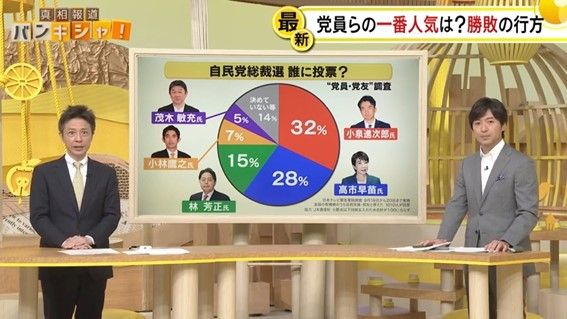In a recent poll among party members and supporters conducted by Nippon Television, Japanese politician High City (Takachi) emerged as the top contender. The survey's results reflect a significant turning point in the perception of leadership within the party ahead of an upcoming critical decision. Further details on the poll's results and the implications for Japan's volatile political scenario are yet to be divulged.
In Japan, party politics plays a significant role in both domestic and international policy-making. With High City's emerging popularity, Japanese citizens may anticipate potential shifts in the political landscape. This could lead to changes in policy direction, emphasizing social stability and economic growth. The public sentiment towards this development is mixed, as it embodies broader debates about political leadership in the country.
In the US or EU, changes in leadership often lead to significant policy shifts. Headlines about emerging leaders or potential leadership change often attracts great public attention and scrutiny, similar to what is currently happening in Japan. However, the party-based political structure in Japan is distinct from the US's two-party system and the EU's multi-party majority governments.

